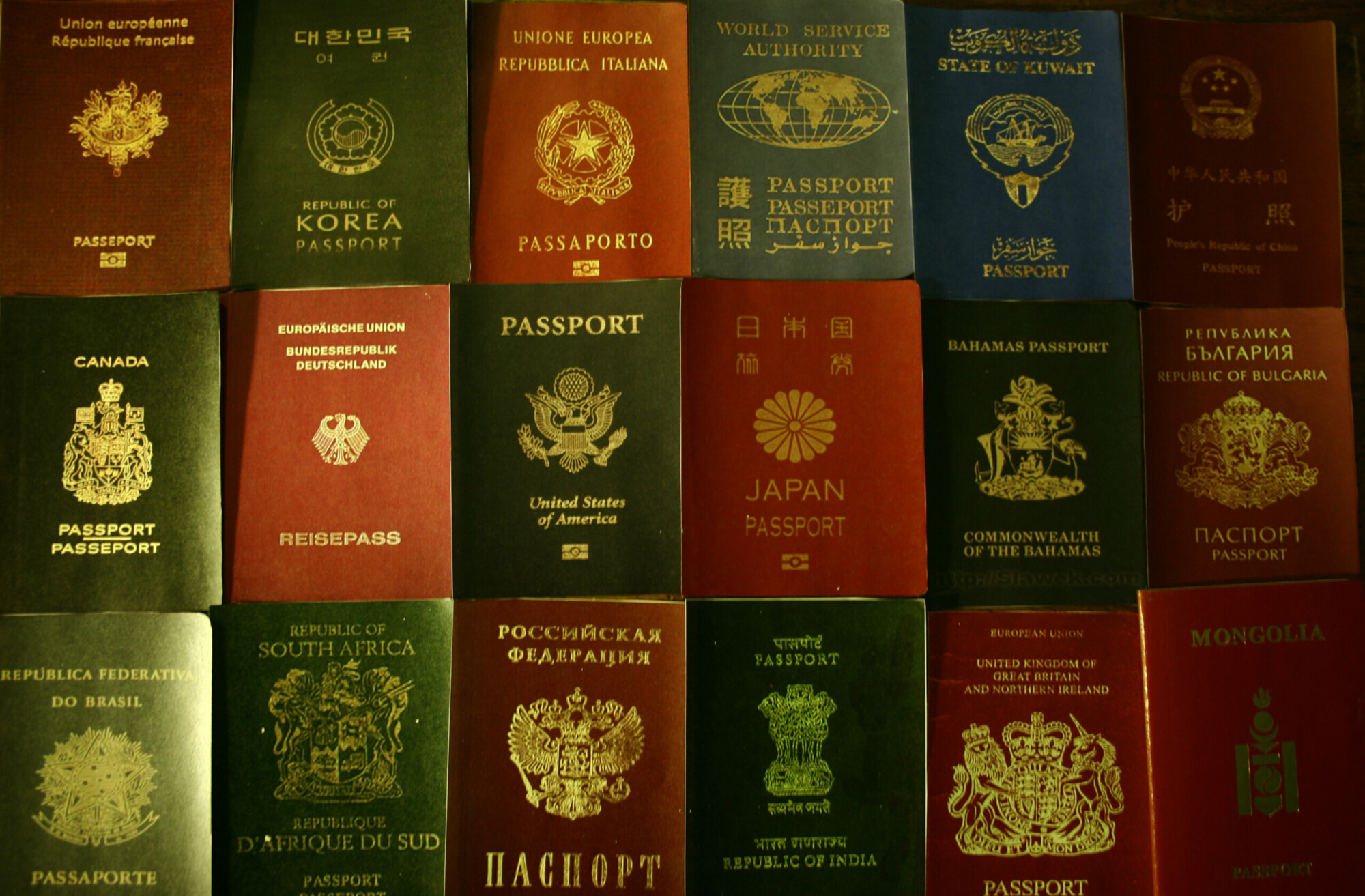A German version of this post was published in the German magazine NEON (Stern) on 16 October 2018.
All over Europe and the world, nationalism is on the rise and the debates about how the respective national culture should be defined are getting shriller by the day. Our author Maria wonders whether all this hostility is necessary at all as she lives perfectly happy without a national identity.
One of my earliest memories is that of moving. If you have ever moved to a new house or school or even to a new country, you may know that feeling of despair when you leave the familiar behind and venture with trepidation toward the unknown. I have felt this often as I have moved from country to country. My dad’s appointment as an analyst at a Swedish software company brought my family from Russia to Hungary, and from Hungary to Sweden, and from Sweden I moved on to the United Kingdom. In addition to this my family is spread across the world, and themselves belong to a range of nationalities.
Passport ≠ Identity
As a result of this, I cannot conclusively determine which nationality I belong to, regardless of what my passport says. I have grown up in three different countries, and spent three years of my early adult life in a fourth. Certain milestones – starting school, finishing school, starting university, coming of age – all occurred in different places. To a certain degree, I think that I understand what national identity is and why people identify themselves as belonging to a certain nationality or ethnic group.
In homogenous Sweden, for instance, it is easy to understand why a person who spent their entire life in Sweden would see themselves as indisputably Swedish. That being said, of course things are never as simple as that, and that is evident most of all through contemporary sociological debates: what happens when people of different ethnic groups strongly identify with the same nationality – do they accept the claim of national belonging of the respective group? Personally, I can detect national identity or patriotism as a phenomena, but have never felt any of both.
Connectivity as an Important Feature
Nowadays, with cheap travel opportunities and prevalent exchange programmes for young people, I think that there are a lot more people who grow up as I do with ‘identity issues’. It may be because their parents are from different countries, or that they have moved as I do, or simply because they have grown up with a ‘pan-European’ mind-set – regardless of the reason, more and more people are struggling to come to terms with who they are, and where they belong (although that, of course, is more generally the perennial struggle of young people).
I am sure that the “struggle” of national identity as such does not constitute a problem. In fact, I would argue that it is a sign of a world that is opening, that is erasing borders from the heads of people. Surely, with imminent global crises such as environmental changes which require a great level of international cooperation, it would be great if young people were not impeded by a sense of patriotism or strong national identity. Of course, the dramatic rise of the alt-right movement and young people who do strongly identify as a certain group or nationality has not escaped the notice of anyone. These people often lament the loss of culture through the ethnic and cultural mix-up that is occurring.
Food and Identity?
My experience counters this paranoia: in the university which I attended, all students conversed and engaged as one, but international groups would regularly convene to present an aspect of their culture to the other groups. For example, at the international food festivals, I made Swedish meatballs to represent Sweden. All this without necessarily restricting my national identity to Swedish! I think that this goes to show that culture is more about action, about what you do – whether that is making meatballs, or baking baguettes, or enjoying siesta – and has less to do with what or who you are. I know that others think differently – and that difference of opinion I respect. But I want to propose that the loss of national identity does, therefore, not equate to the erosion of culture – and diversity can, ultimately, enrichen culture.
It is interesting, as well, to charter the perception of national identity as it manifests itself in academic contexts: most poignantly, historiography shows how national identity has coloured the constructions and critiques of historical accounts. Recently I had the fortune to study the so-called “Vichy Syndrome” – a case of French historians, and, of course, France as a whole, coming to terms with its past of collaboration and resistance during the period that it was occupied by Germany. There were those that believed that in order to bolster French national identity, the past had to be angled in such a way which would emphasise French resistance and conceal French collaboration. Later, student counter-movements pushed for a reversal of this order.
Controversial History to Shape Identity
The Vichy Syndrome is only one example of national identity playing a part in the construction of history. There are many others (I would urge to look at some interesting historical debates such as the German ‘Historikerstreit’). It really does show that national identity plays an important role in our society, but also demonstrates that perceptions thereof are constantly changing. It is becoming more difficult to narrowly define national identity, and it is also more dependent on individuals.
Just because I struggle with my own national identity, I would never dismiss that of anyone else. I fully respect that some people see themselves as European, and others as German/English/Italian or something else altogether. But maybe nowadays national identity is less like a pre-assigned seat on a train and more of a game of ‘Musical chairs’ in which everything is constantly changing.





